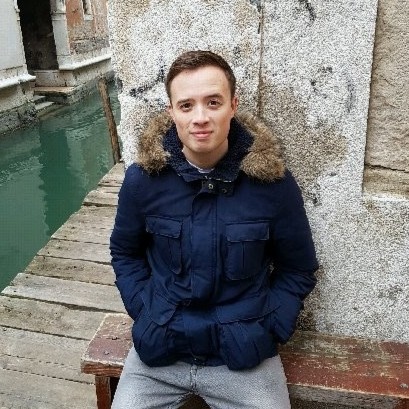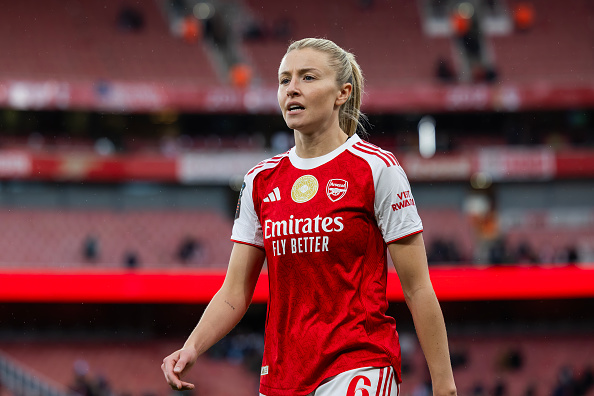Michael Appleton interview: "Alex Ferguson had a right pop at me, and rightly so. I hadn’t done due diligence before taking the jobs"
Michael Appleton suffered the hairdryer treatment from Alex Ferguson after brutal coaching apprenticeships at Portsmouth, Blackpool and Blackburn. Now, as Lincoln dare to dream of second-tier football, the Imps boss tells FFT his gruelling story
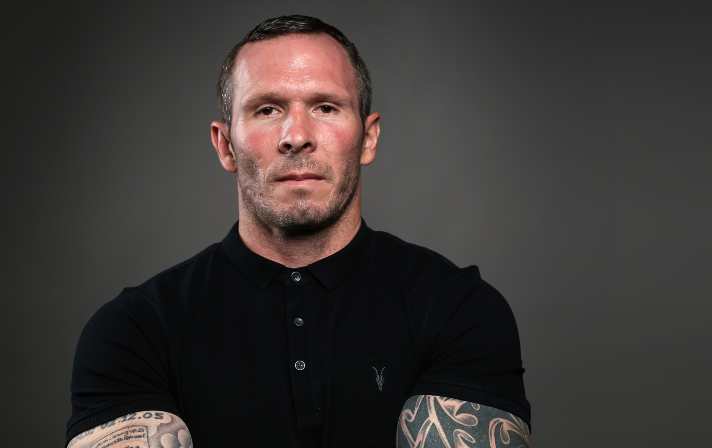
The best features, fun and footballing quizzes, straight to your inbox every week.
You are now subscribed
Your newsletter sign-up was successful
Want to add more newsletters?

Five times a week
FourFourTwo Daily
Fantastic football content straight to your inbox! From the latest transfer news, quizzes, videos, features and interviews with the biggest names in the game, plus lots more.

Once a week
...And it’s LIVE!
Sign up to our FREE live football newsletter, tracking all of the biggest games available to watch on the device of your choice. Never miss a kick-off!
Join the club
Get full access to premium articles, exclusive features and a growing list of member rewards.
This feature first appeared in the March 2021 issue of FourFourTwo magazine. Subscribe now and get five issues for £5!
Michael Appleton was 37 when he learned that you’re never too old for a bollocking from Alex Ferguson. It had been 16 years since he’d last played for Manchester United, and the former Preston North End midfielder had even managed three clubs of his own. Nonetheless, a Glaswegian tongue-lashing was heading his way.
In March 2013, Appleton had been sacked after 67 days in charge of Blackburn Rovers, by a man he’d never met. As his two previous paylords at Portsmouth and Blackpool would later be respectively jailed for bank fraud and found guilty of asset-stripping, it hadn’t been the easiest start for a young coach trying to make an impression. Fergie was unamused.
“He had a right pop at me, and rightly so,” Appleton tells FourFourTwo. “I hadn’t done due diligence before taking the jobs. I get it now, but at the time it was a bit ‘Bloody hell!’ I hadn’t played under him for a long time, but he clearly had a lot of respect, to ask for a meeting and tell me some things. I needed to start making better decisions.”
And he did...
Rip it up, start again
Today, Appleton is relaxed but focused, with a steely determination that underpins all of his work at Lincoln City. The 45-year-old has experienced things most people never will, let alone managers, but he has fought through adversity to become one of the outstanding figures in the Football League. He has trawled the depths of despair as ‘quite an angry man’ mourning a lost playing career. Now, leading a bold era at the Imps, Appleton knows exactly who he is and what he can do.
“I get stick off my wife,” he says. “She calls me ‘Flatline’, because sometimes she doesn’t know by my reactions whether we’ve won or lost. But there’s a reason for that. Inside, I’m buzzing – and there are times you’ve got to celebrate on the sidelines – but you can’t get too carried away. Losing as a manager is the worst feeling. I can’t think of one worse, other than grieving the loss of somebody you love. You take it personally until you win again.”
The best features, fun and footballing quizzes, straight to your inbox every week.
Thankfully, he hasn’t felt that way often this season. Lincoln have spent much of 2020-21 in the top two of League One, in only their second campaign at this level since 1998-99, despite Appleton dismantling the giant-killing squad that predecessor Danny Cowley left behind in September 2019. Cowley may have achieved two title-winning promotions, glory in the Football League Trophy and that epic run to the FA Cup quarter-finals in 2016–17 – as the first non-league side to reach the last eight since 1914 – but only two senior players have survived a ruthless overhaul, which has changed the culture of a club that’s still rising.
“Anywhere 12th and upwards would have been seen as progression,” admits Appleton. “That would have been better than last year [16th], but most importantly, we’d also made so many changes. Managing expectations as a coach is probably the single most important but hardest thing to do. If you’ve got a level of expectation that you can’t quite reach, the job can get away from you very quickly. One of the things I spoke about to the board was transparency: just being honest with people, including the Lincoln supporters. I was quite open, and I got a bit of stick at first by saying things might take a little time to improve, but the board were perfectly happy for me to get that message out there.
Managing expectations as a coach is probably the single most important but hardest thing to do. If you’ve got a level of expectation that you can’t quite reach, the job can get away from you very quickly
Michael Appleton
“They had a model that they didn’t believe they could continue with financially, because it wasn’t sustainable. They needed a new one going forward: to change their style of play, which might attract some better players, and produce our own – if not from our academy, then by bringing in youngsters from Premier League clubs who didn’t have a pathway they were looking for. The Lincoln squad’s average age was around 30 when we came in; we’ve got it down to about 22 and a half.
“That was tough, and we took a lot of risks last January [2020] by getting rid of several experienced players, but now I’d like to think we’ve got a pretty good balance in terms of experience and stardust.”
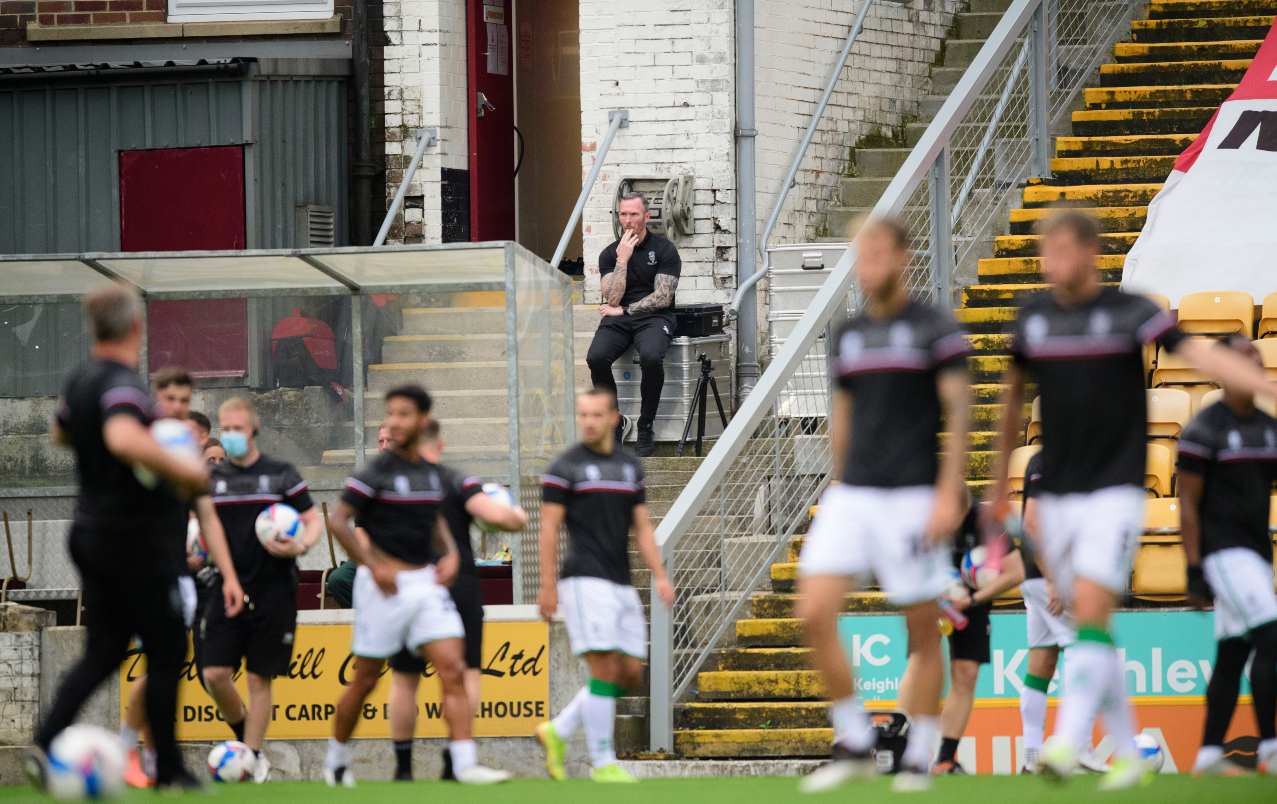
Appleton has used his contacts in higher circles to borrow young prodigies – all in their teens and early 20s – such as Brennan Johnson (Nottingham Forest), Morgan Rogers (Manchester City) and TJ Eyoma (Spurs) on loan. He has also recruited astutely elsewhere with the same profile in mind: up-and-coming centre-back (and former model) Lewis Montsma, for example, was signed on a free transfer from Dordrecht in the Dutch second tier, before improbably netting in six of his first nine Lincoln outings. All arrivals, though, must fit the philosophy.
“You need buy-in from the players,” insists Appleton. “Some people think it might not work for everyone – for more senior players, or those at a higher level – but I disagree. If you’re honest and authentic, and tell people what you want, it’s possible. But you have to be able to back that up, too. From a coaching perspective, you’ve got to earn the players’ respect, and that’s one thing I always try to do pretty quickly by getting out there on the grass. I’m sure I can get their respect when they see me work.
“You set demands on the players every day, but you’ve got to be brave enough to follow through. If someone isn’t toeing the line, you have to deal with them. It doesn’t necessarily mean a strong arm in terms of flexing power; digging them out in front of the other players or effing and blinding. It’s about getting an understanding of them. Sometimes you can get players onside if you find out more about them as people. I’ve had to do it a couple of times at both Oxford and Lincoln.
“You get good and bad reactions. At least you know where you stand; whether they can be part of what you want to do or not. There are two players at Lincoln still here from the day I first walked in the door: Jorge Grant and Harry Anderson. Jorge has probably been our most consistent player this year, and among the top five players in League One, but when I came in he wasn’t prepared to run. He wanted the ball to feet all the time, to show what a good player he is, but he didn’t really want to do the work. Now, he covers as much ground as anyone here. It took me having to bring him off at half-time in a game and then telling him why, but his reaction was fantastic. And Harry was very industrious and hard-working, but he had to improve his quality and ability to pick up things tactically – not be robust and 100mph all the time. He was prepared to do that.
There were some players who weren’t prepared to change for the benefit of the team. I had very respectful conversations with them, but in the end we decided to move on
Michael Appleton
“There were some players who weren’t prepared to change for the benefit of the team. I had very respectful conversations with them, but in the end we decided to move on and go different ways. I’m quite relaxed about those conversations, though.”
To outsiders, replacing Cowley in the autumn of 2019 looked like a thankless task. But in reality, there were signs that Lincoln were starting to wobble when their beloved figurehead left to join Huddersfield Town in the Championship. Observing from the Sincil Bank stands before taking control at the club, Appleton saw his new charges hammered 6-0 by his former employers Oxford – City’s seventh defeat in nine games. When he grabbed the reins after that, the Imps won one of their opening eight outings under his tutelage.
“I knew it was going to be difficult,” Appleton tells FFT. “They had started superbly well but tailed off by the time I arrived, so we needed to start finding ways to win games, pretty quickly. When you don’t do that, it’s really important to stick to the process and not waver.”
Still, when you’ve previously faced the sack from one mysterious owner and had another who won’t answer his phone, not to mention points deductions, no balls to train with and a pre-season without any players, what’s a bit of adversity now and again?
Jekyll and Hyde
When Appleton went under the surgeon’s knife in November 2001, he had no idea the operation would end his playing career and leave him unable to ever run properly again.
A gritty central midfielder who had made two League Cup appearances for Manchester United in 1996, Appleton left Old Trafford for Preston in the summer of 1997 and helped them to win the Second Division title. Joining West Bromwich Albion in 2001 was a step up – but 11 months on, with the Baggies set for promotion, it was all over.
“It was just a freak injury in training,” says Appleton. “I’d got to the ball in front of Des Lyttle, and he caught me when my leg was hyperextended. I wasn’t too bothered about it initially: I thought I’d be out for about six weeks, maximum. The scan showed much more damage, however, and at the time, it was decided that they would reconstruct my posterior cruciate ligament.”
But, as a 2007 court case would later prove, surgeon Medhat El-Safty should never have operated. Appleton was eventually awarded £1.5 million in damages – thought to be one of the the biggest payouts in English football – but his playing days had already been over for three and a half years.
“We had a reserve game at Newcastle, and halfway through the match I wasn’t getting near anyone,” he recalls of the night in 2003 when he knew his race was run. “Young lads were dancing around me, and I just had one of those out-of-body moments. I didn’t say anything to anyone – I simply walked off the pitch. I didn’t shower and didn’t get changed. I just put my tracksuit on, got in my car and headed home to Preston. I knew within those two hours that I was finished. It was a long, lonely drive, knowing I’d never kick a ball in professional football again.”
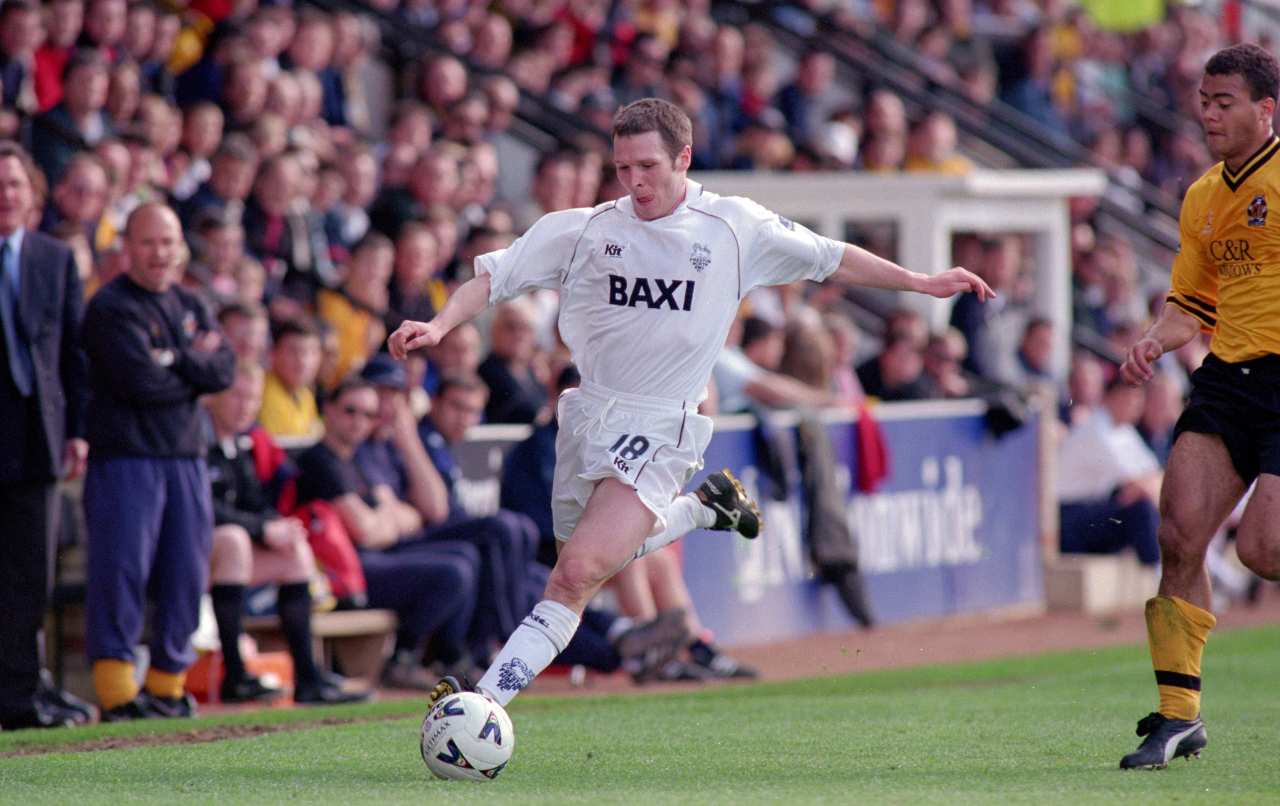
For a long time, the sense of injustice was very tough to handle.
“Although I knew the end was coming, it still felt horrendous,” says Appleton. “At first, I was so angry: it cost me 10 years of my career, when I shouldn’t have been operated on in the first place. I was an angry man for a period of time – not meaning to be, but just being short-tempered and not wanting to engage with people. Even though I’ve changed now, it wasn’t me even then – I always used to be up for a joke as a player, but I lost a lot of that.
At first, I was so angry: it cost me 10 years of my career, when I shouldn’t have been operated on in the first place
Michael Appleton
“The gym helped me get through it. I went ridiculous, to be honest. I was really into the weights and soon got quite big, but spending that hour in the gym gave me a good feeling. The testosterone was flying around, which almost calmed me down. It was only a year or so later that I spoke to West Brom’s doctor, who said to me, ‘If I’d known you before your injury, I’d have got you to speak to someone, 100 per cent.’ He was convinced that I was depressed, because after I’d come through that period, he noticed this Jekyll-and-Hyde transformation. The real Michael wasn’t the person he’d seen before.”
Appleton’s grim acceptance of one door closing would, over time, open another for a bright future in coaching. West Brom took him on, and his off-field mindset improved.
“I had this drive to be as fully qualified as quickly as I could,” he explains. “I was going to be the youngest coach in the game with all the qualifications. Within four or five years, I went from having a Level 2 badge to doing my Pro Licence and then getting a diploma in management. It gave me something to do mentally, but it also allowed me to meet lots of coaches. When I started, I wasn’t a great mixer – people must have thought I was the moody one in the corner. I slowly learned to integrate well and began to enjoy it.”
Baggies bosses soon trusted Appleton with more responsibility – even after an awkward initiation with his first scouting assignment for Gary Megson.
“It was Wimbledon against Nottingham Forest,” he tells FFT. “I remember [assistant manager] Frank Burrows stopping me in the corridor and telling me, ‘Michael, this report is absolutely incredible – one of the most detailed I’ve ever seen in my career. There’s just one issue. You’ve done it on the wrong f**king team’.”
Pay up, Pompey
Picking the wrong team would become an unfortunate theme for Appleton as he made his first bold steps into management. After seven successful years at The Hawthorns, the Salford native went solo to join second-tier Portsmouth in November 2011, unaware of the chaos that was to come.
“I’d met the owners a couple of times and hit it off with one of them – Roman Dubov, who’d been an ice hockey player and had to retire early like me,” says Appleton. “They had a five-year plan that included building a new training ground and improving Fratton Park – maybe even building a new stadium. For about two months or so, things were going great: we were winning games and flying up the league. Then, one day, I got six missed calls in the space of an hour and saw it flash up on Sky Sports: the owners’ company had gone into administration.”
Within just a fortnight of Appleton being appointed, a Europe-wide arrest warrant had been issued for co-owner Vladimir Antonov. When Pompey’s parent company collapsed into administration, Antonov – later jailed in Russia for two and a half years – resigned and left them with a winding-up petition by HMRC for over £1.6m in unpaid taxes. Portsmouth fell victim to the same fate in February 2012, leading to a 10-point deduction.
As the club was passed between different administrators, Appleton faced the daunting task of trying to keep a sinking ship afloat.
“The new administrators got rid of the whole board,” he recalls. “I spoke to them, and they wanted me to sack most of the staff. I said that wasn’t an option, so the players had to take even more of a wage cut. It got to the point where we couldn’t even afford a chef to feed the players, so we had to think of other ways to get food ordered, or ask them to bring in their own.
“One morning, I turned up and the kitman said, ‘You’re not going to be able to train.’ The balls were in a container, and the company who owned it had been in overnight and changed the locks. So we went to a David Lloyd club and played five-a-side indoors, to do something until we could strike an agreement.
“I remember being asked in a press briefing about a player’s injury, and I literally just had to say, ‘I don’t know’ – we couldn’t afford to send him for a scan. But the fans and wider community really stepped up in that period. Someone stumped up money for the player to get looked at after that.”
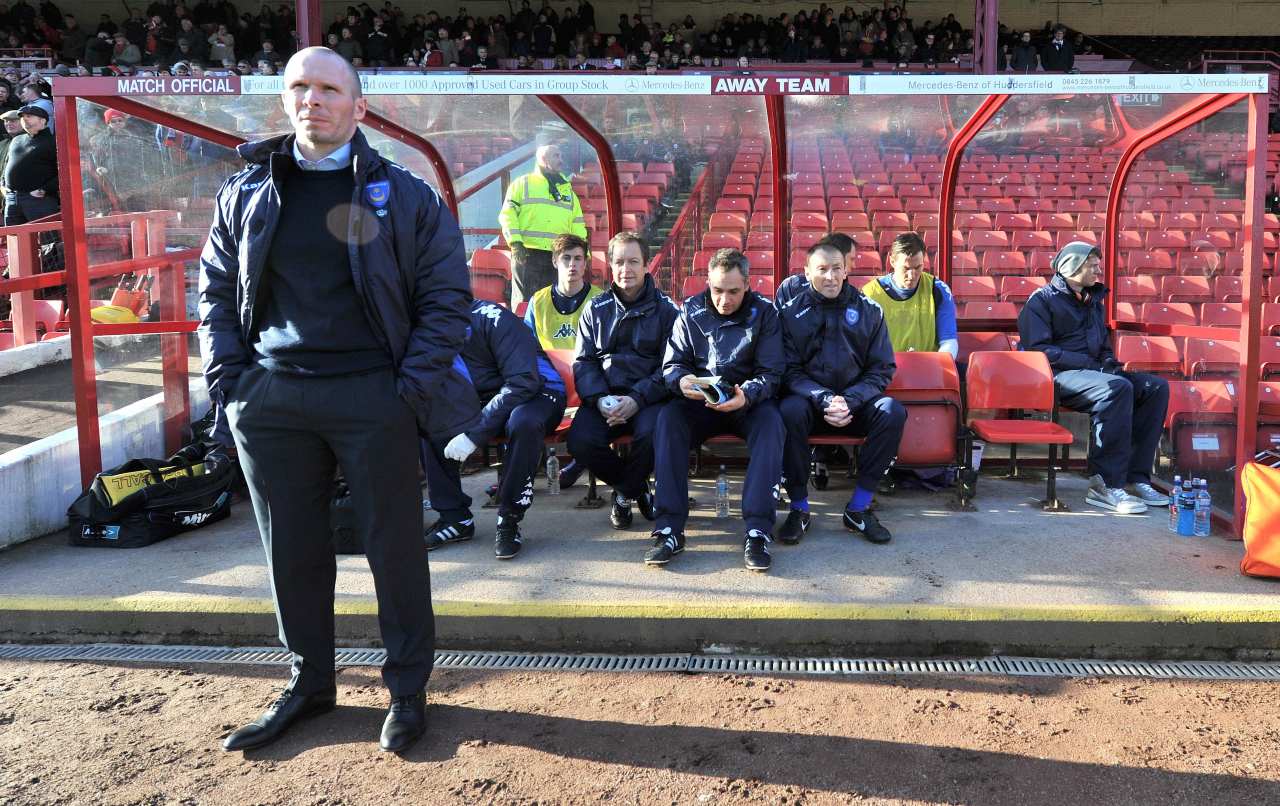
Despite Portsmouth’s gutsy attempt to beat the drop with a dilapidated squad, the points deduction ensured the 2008 FA Cup winners went down to League One in 2011-12. That summer, eight senior pros remained on their books – and they needed to offload the lot of them. In dire straits, Appleton rounded up as many willing free agents as he could muster for a 10-day pre-season trip to Spain, funded by a pair of benevolent local businessmen.
“We ended up going there with 14 lads who were desperately trying to earn a deal,” says Appleton, of an unusual lads’ holiday. “Sadly, when we got back, 60 to 70 per cent of the guys who came couldn’t wait any longer and went elsewhere.”
In Pompey’s first game of the campaign – a 3-0 League Cup defeat to Plymouth – Appleton fielded a team made up of teenagers and first-team coach Ashley Westwood, who went off injured after half an hour. With a smile, Appleton says, “A few days later, we were able to sign 10 players on month-to-month deals, so we could face Bournemouth in opening our league game.”
Miraculously, after winning only one of their first eight games in the third tier, Portsmouth occupied a top-half place by late October as the club sought to find a new buyer and exit administration. Behind the scenes, however, the situation was still chaotic.
“It had become more like a chief executive role rather than a head coach one,” reveals Appleton. “For six weeks, my life was getting up, taking training, heading to Fratton Park and having a three-hour meeting with either the administrators or potential new owners. That was three or four times a week for six weeks solid. As much as I loved working for the club, it took all of the enjoyment out of it. That’s when Blackpool came in.”
Without Appleton, Portsmouth plummeted into the fourth tier after a 22-match winless streak was compounded by another 10-point deduction. For both parties, the only way now was up... eventually.
Be careful what you wish for
Blackpool, crucially, were not Portsmouth. It was a job much closer to Appleton’s home and children, and, at the time, comparatively calm when it came to the financial situation.
He was Tangerines boss for 65 days.
“You look at them now and they’re a totally different club,” rues Appleton, alluding to the Seasiders’ 2019 takeover which concluded 32 years of Oyston ownership. “I just made a poor judgement. I didn’t do proper research on the Oystons, particularly Karl, who to this day is the most difficult man I’ve ever worked with. I could never get hold of him, and he wasn’t willing to have sensible conversations. I found him to be very disrespectful, but I was in such a rush to get out of the environment I was in – and I could never be sure I’d keep my job at Portsmouth anyway, if new owners took charge of the club.”
Having been forced to contend with a pitiful home pitch, make do with signings far down his priority list, and generally scrap for basic needs with Oyston, Appleton jumped at the chance to leave Blackpool when Blackburn came calling in January 2013. Rovers, also in the Championship, had fallen on hard times under Venky’s, but Appleton arrived at Ewood Park with the hope that things might not be as bad as they appeared from the outside.
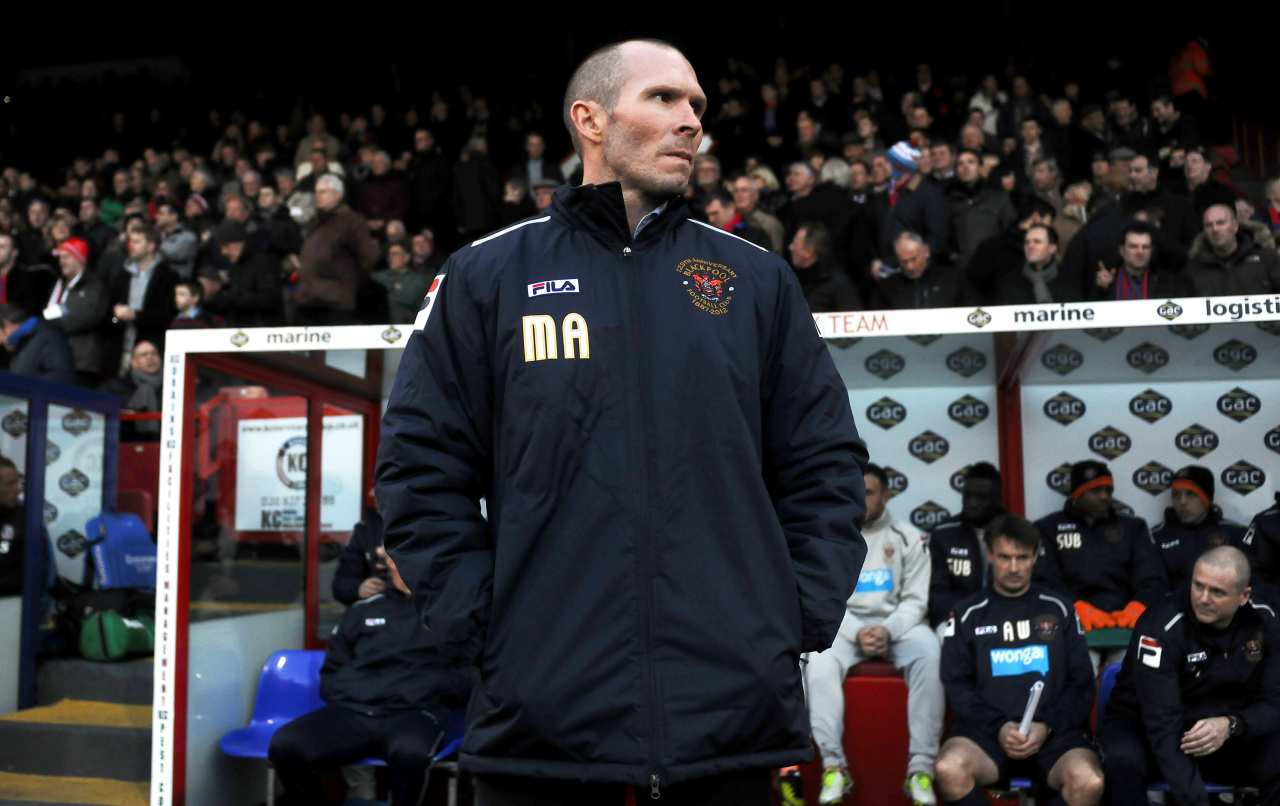
“It was strange,” he explains. “In my head, I knew I had made a poor decision in moving to Blackpool, but I thought Blackburn may be different. Henning Berg had been there for a really short time, and I thought to myself, ‘That isn’t going to happen again.’ I thought I would have a bit of time to rebuild, and that was very much the remit when I first met the owners. They simply wanted to make sure we stayed in the Championship, while reducing the playing budget. They knew I could work without money and deal with hard situations. We had a great month, and beat Arsenal 1-0 away in the FA Cup during a spell when they were turning over everyone at the Emirates, before things got more difficult.
I gave the players a couple of days off, then came back to work and found a letter from someone I’d never met in two months, giving me the sack. I couldn’t even tell you now what his role was
Michael Appleton
“I didn’t want to moan about it at the time, but I think we had 16 players out injured at one point. Among the critical ones was Colin Kazim-Richards, who played a pivotal role for me early on – he was a bit of a talisman and did great for us. He got injured against Leeds and after that it became tough.
“There were so many new guys in the side, but we had a huge derby at home to Burnley and nicked a point in the 95th minute. There was a feeling in the dressing room afterwards that it was a turning point for us – everybody was buzzing. I gave the players a couple of days off, then came back to work and found a letter from someone I’d never met in two months, giving me the sack. I couldn’t even tell you now what his role was.”
That man was Shebby Singh, Rovers’ ‘global advisor’ telling Appleton to do one without managing director Derek Shaw’s knowledge. On a totally unrelated note, Singh and Shaw were said to avoid each other on matchdays and watch games from separate boxes.
Raising the Roofe
Today, Appleton can chuckle about working at his own little shop of horrors, but following Ferguson’s rocket he knew he needed to think smarter about his career. Taking tough jobs may have earned him levels of respect within the game, but they didn’t boost his long-term prospects, as an overall win ratio of only 25 per cent by that point attested.
Joining Oxford United in July 2014 offered him the positive experience he was seeking: a testing year of rebuilding, then promotion to League One in 2015-16 as well as two cup finals, having signed and developed the likes of Kemar Roofe and John Lundstram. Before Appleton, the U’s hadn’t secured promotion within the Football League for two decades.
Departing Oxford in 2017 to become Craig Shakespeare’s No.2 at Leicester City did raise eyebrows, not least when his friend got the heave-ho and was replaced by Claude Puel, who let Appleton go at the end of the season. But he has been around for long enough now to know when he’s onto a good thing.
“When my playing days were over, I was in such a rush to become the best and youngest manager out there that I almost forgot to do the job properly,” he concedes. “Because I’d missed out on 10 years of my career, I was in too much of a hurry to get to the top. I can only be happy with the last six or seven years, going to Oxford and enjoying some success there, then coming to Lincoln.
“Those bad experiences helped me through the first couple of months at Lincoln, though, and the first six at Oxford when things were very difficult. I went there after the team had lost seven of the previous season’s last eight games, and knew I had to change the club’s mentality and culture. We managed to do it. We had a fantastic second half to my first season, then got promoted and reached two Football League Trophy finals. We developed and sold players for significant money, which Lincoln had done their research on.”
Now, the Imps are extremely glad they did.
Appleton refuses to look too far ahead: his contract at Sincil Bank still has two years left after the current campaign is through, ideally with Lincoln in the Championship way ahead of schedule. He has long-term targets, but no longer is he trying to do things quickly.
“You don’t ever stop learning,” he tells FFT. “At Oxford, I had this crazy idea that I’d do a Masters in sport directorship. I like being out of my comfort zone, and I wanted to make sure that I improved on how I was managing upwards. I think it helped me do that. It was useful to understand from a perspective of what they wanted – not just what I wanted as a manager.
“Now, although I feel like I can manage at the highest level eventually, I think I’m pretty adaptable. I could go into an assistant’s role tomorrow and still be me – there wouldn’t be an ego expecting he should be the manager.
“Some day – not soon – I’d like to become a director of football, having gained a much better understanding of how clubs run. This is a cut-throat business. If Lincoln said to me tomorrow, ‘We’ve decided to go in a different direction’, then I’d be really disappointed but confident that my skill set could soon get me another job elsewhere.”
Right now, however, that scenario looks as purely hypothetical as one can be.
Subscribe to FourFourTwo today and get your first five issues for just £5 for a limited time only - all the features, exclusive interviews, long reads and quizzes - for a cheaper price!
NOW READ
CHELSEA Who does Chelsea's loan system work for? How Patrick Bamford left for better things
FEATURE Son Heung-min's incredible journey to the top: how the Tottenham star made it
Joe was the Deputy Editor at FourFourTwo until 2022, having risen through the FFT academy and been on the brand since 2013 in various capacities.
By weekend and frustrating midweek night he is a Leicester City fan, and in 2020 co-wrote the autobiography of former Foxes winger Matt Piper – subsequently listed for both the Telegraph and William Hill Sports Book of the Year awards.
 Join The Club
Join The Club










